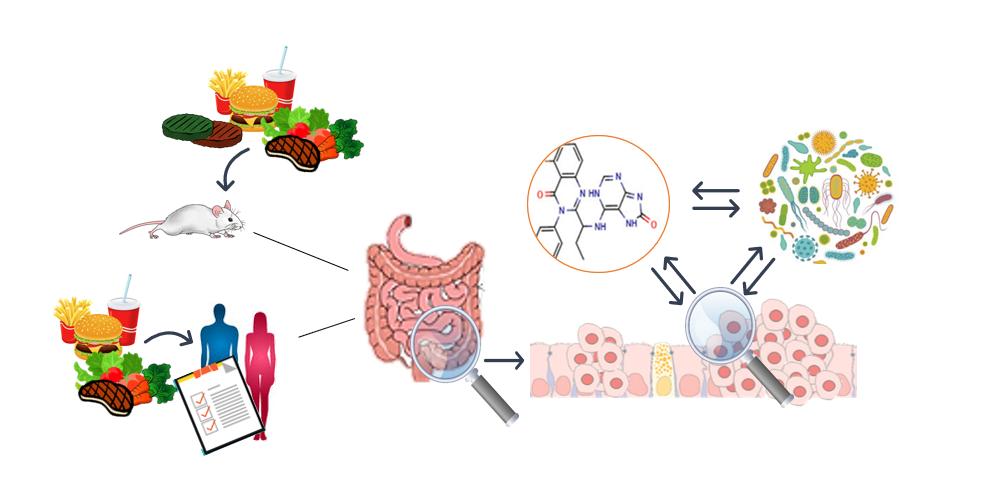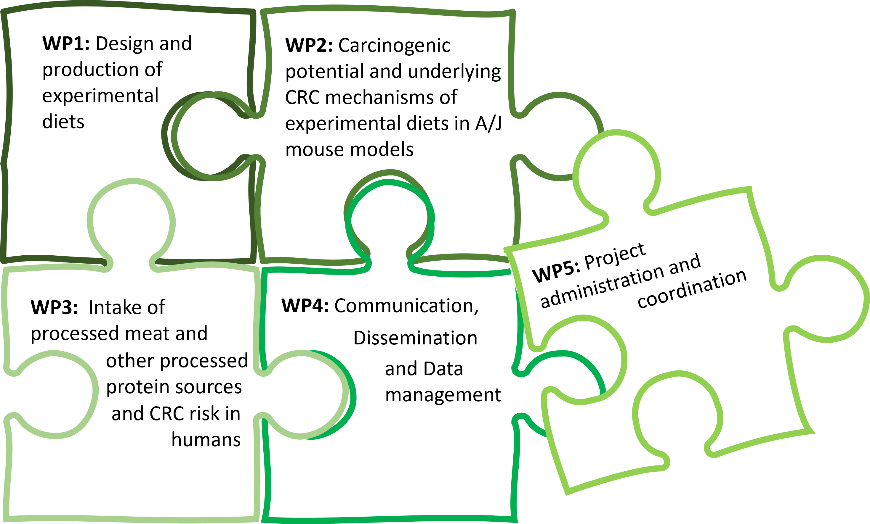Background
Colorectal cancer (CRC) is the third most common cancer and the second most common cause of cancer deaths worldwide. Norway has one of the world’s highest incidences of CRC, even showing a rapid increase in recent years. The etiology could be hidden in our dietary habits. In this respect, the International Agency for Research on Cancer (IARC) has categorised processed meat as a group 1 carcinogen and red meat as a group 2A carcinogen for colorectal cancer (CRC), and the World Cancer Research Fund (WCRF) has deemed the association between processed meat consumption and CRC convincing. However, this conclusion was mainly derived from epidemiological studies in populations that have a Western diet characterised by a high intake of energy-dense and processed foods. Furthermore, the cause-and-effect relationships and the key carcinogenic drivers have yet to be documented.
An avoidance of meat products would, however, have a considerable impact on the food self-sufficiency in Norway: overall, it varies between 45-50 %, but is above 90 % for meat and meat products. This is due to the specificities of the Norwegian agriculture, where two thirds of the cultivated land are areas with grass production that provide feedstuff for livestock. In addition, approximately 45 % of Norway’s uncultivated land is suitable for rough grazing. The majority of the nationally produced proteins in the Norwegian diet are today based on products from free-grazing or grass-fed ruminants such as cattle, sheep, goats, and reindeer. These animals make use of otherwise uncultivatable natural resources and upcycle them to high quality nutrients, including proteins, for human consumption.
In this context, the CRC-3p project has been initiated with the objective of investigating the carcinogenic potential of both red meat and plant-based meat alternatives. The study will also assess the impact of dietary patterns on the carcinogenic potential of processed foods. Given the escalating trend of CRC incidents in Norway, this research is addressing critical questions related to cancer risks associated with dietary choices. This research aims to contribute to ensuring a secure and safe food supply for the Norwegian population.
Aims
The CRC-3p project is designed to determine the carcinogenic potential of red meat and plant-based meat alternatives with the aim of revealing the significance of the protein source and the degree of processing (unprocessed, processed, ultra-processed) on colorectal cancer (CRC) development. Additionally, CRC-3p aims to elucidate how dietary patterns may influence the carcinogenic potential of the different processed foods.
Funding: NFR – KSP collaboration project between academic and industrial partners (2024 – 2027)

Work plan
The research questions will be addressed using A/J mouse models and accessing existing and new data collected in Norwegian epidemiological studies.
Research questions for CRC-3p:
- What is the carcinogenic potential of meat and plant-based meat alternatives in the A/J mouse models?
- Does degree of processing (unprocessed, processed, ultra-processed) of meat and plant-based meat alternatives play a significant role in carcinogenesis in the A/J mouse models?
- Can dietary factors that are recognized as part of a healthy or unhealthy diet increase or reduce colorectal carcinogenesis in the A/J mouse models?
- Does risk of CRC in humans differ when processed meat or plant-based meat alternatives are part of a healthy vs unhealthy diet?
